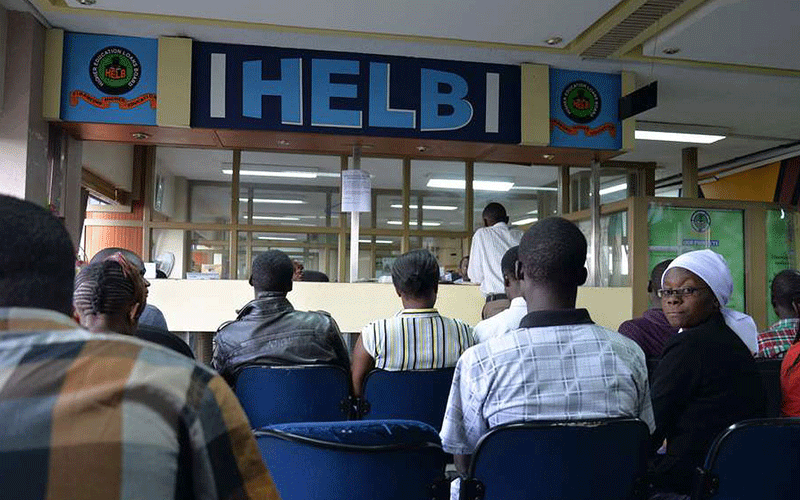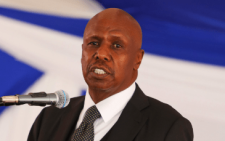Varsity students’ trouble after Helb slashes loans

The Higher Education Loans Board (Helb) has been forced to scale down the average loan allocation for university students from Sh45,000 to Sh37,000.
Board Secretary Charles Ringera attributed the decision to adverse effects of Covid-19 pandemic, which had resulted in job losses that had impacted on past students’ ability to service their loans.
Speaking at Helb offices in Nairobi, he said the situation may become worse if a proposal in the Building Bridges Initiative (BBI) report to extend repayment moratorium on past loans is adopted.
“Covid-19 has negatively impacted household incomes. Ordinarily, 80 per cent of students admitted to universities would apply for Helb support but this year out of the 122,000 students placed in universities, the applications now stand at 155,000, indicating that the number of parents who would not necessarily have intended their children to borrow have now applied due to loss of income,” said Ringera.
Numerous requests
Owing to the current funding status, Ringera said student financing will be negatively impacted by possible reduced proceeds from repayments and recoveries. This means needy students will not be financed adequately.
He also noted students whose funds had been disbursed for their second semester or last year of study, will be affected because the loan has been utilised for other social needs hence they will not have cash when normalcy returns and students are back in learning institutions.
Helb has received numerous requests for extra funding and loan reviews, with Ringera saying universities and colleges may resort to crash programmes which might not be in line with the board’s funding cycle hence applying pressure on student loans.
“The closure of learning institutions will eventually delay deployment of 2020/2021 first time loan applications as the normal admission placement calendar is likely to be compromised,” noted Ringera.
Given the challenges the board has raised, Ringera said Helb had placed a supplementary budget request of Sh6.2 billion to cover the Sh1.7 billion expected shortfall in loan recoveries.
He said that change in learning mode from classroom to e-learning which heavily relies on digital gadgets, had necessitated the need to facilitate needy students to acquire laptops to ensure that they do not drop out of college. The board has sought Sh2 billion this year for the purchases.
Ringera said the parastatal risks huge financial shortfall if proposals in the BBI Bill are adopted and will beat sustainability of an education revolving fund.
He said the proposal to increase from one year to four years the grace period when a loanee should start repayment could see 48,281 needy students drop out of college or fail to take up admission for lack of funding.
An estimated 31 per cent of loanees with newly matured loans start repayments in their first year, he noted.
“In the last financial year, 21,626 newly matured loanees paid a total of Sh519 million translating to an estimated Sh2.1 billion for four years.
It is worth noting that Sh2.1 billion is adequate to fund over 48,281 students at an average of Sh43,000 annually,” Ringera told the National Assembly Committee on Education.
He also questioned another BBI proposal of an employer not disclosing the Helb loan beneficiaries, making deductions and remitting to the board without authority of a loanee.
“This will be problematic in that one can refuse to grant authority to the employer yet it is a statutory deduction.
If this happens, Helb will not be able to enforce compliance and loans will fall in default even for beneficiaries who are employed,” Ringera said.
He explained that if Helb were to wait for loanees to inform them whether they are earning income or not, the collection effort will purely be determined by levels of patriotism and attitude of the borrower.
He said this proposal leaves a grey area on when one is deemed to be employed or having an income and some beneficiaries may take advantage not to repay.
On a monthly basis, an estimated 15,078 self-employed loanees repay their loans amounting to Sh96.3 million, which translates to Sh4.6 billion in four years, an amount that can fund up to 107,514 needy students at an average Sh43,000 per student annually.
Ringera said, Helb allocates loans to students for the whole academic year but releases the amount in two instalments at the beginning of the semester.
The disbursements are funded by quarterly capitation releases and monthly loan recoveries.
He said the current student tuition fees stands at Sh16,000 annually out of which Helb finances Sh8,000 directly to the university.
If the proposed fee increment of Sh48,000 is adopted and to cushion needy students from adverse effects that comes with it, Helb will require additional funding, he said.











